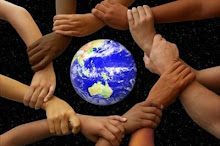Definition of Verbal Codes
The Features of Language
Verbal means "consisting ofwords." Therefore, a verbal code is a set of rules about the use of words in the creation of messages. Words can obviously be either spoken or written. Verbal codes, then, include both oral (spoken) language and non-oral (written) language.
Symbols are words, actions, or objects that stand for or represent a unit of meaning. The relationship berween symbols and what they stand for is often highly arbitrary, particularly for verbal symbols.
Rule Systems in Verbal Codes
The basic sound units of a language are called phonemes, and the rules for combining phonemes constitute the phonology of a language.
Phonemes combine to form morphemes, which are the smallest units of meaning in a language. The 45 English phonemes can be used to generate more than 50 million morphemes!
The study of the meaning of words is called semantics.
Denotative meanings are the public, objective, and legal meanings of a word. Denotative meanings are those found in the dictionary or law books. In contrast, connotative meanings are personal, emotionally charged, private, and specific to a particular person .
syntactics, the relationship of words to one another.
pragmatics, the effect of language on human perceptions and behaviors.
Interpretation and Intercultural Communication
Translation can be defined as the use of verbal signs to understand the verbal signs of another language. Translation usually refers to the transfer of written verbal codes between languages.
Interpretation refers to the oral process of moving from one code to another.
An idiom is an expression that has a meaning contrary to the usual meaning of the words.
Howard Giles has developed communication accommodation theory to explain why people in intercultural conversations may choose to converge or diverge their com- munication behaviors to that of others.
Dialects are versions of a language with distinctive vocabulary, grammar, and
pronunciation that are spoken by particular groups of people or witbin particular regions.
Dialects can play an important role in intercultural communication because they often trigger a judgment and evaluation of the speaker.
Distinguishable marks of pronunciation are called accents. Accents are closely related to dialects. Research studies repeatedly demonstrate that speakers' accents are used as a cue to form inlpressions of them.
Argot refers to a specialized language that is used by a large group within a culture to define the boundaries of their group from others who are in a more powerful position in society.
Because of the many languages spoken in the United States, you will likely have many opportunities to hear and perhaps to participate in a form of language use called code switching. Code switching refers to the selection of the language to be used in a particular interaction by individuals who can speak multiple languages.
Distinguishable marks of pronunciation are called accents. Accents are closely related to dialects. Research studies repeatedly demonstrate that speakers' accents are used as a cue to form inlpressions of them.
Argot refers to a specialized language that is used by a large group within a culture to define the boundaries of their group from others who are in a more powerful position in society.
Because of the many languages spoken in the United States, you will likely have many opportunities to hear and perhaps to participate in a form of language use called code switching. Code switching refers to the selection of the language to be used in a particular interaction by individuals who can speak multiple languages.










0 comments:
Post a Comment